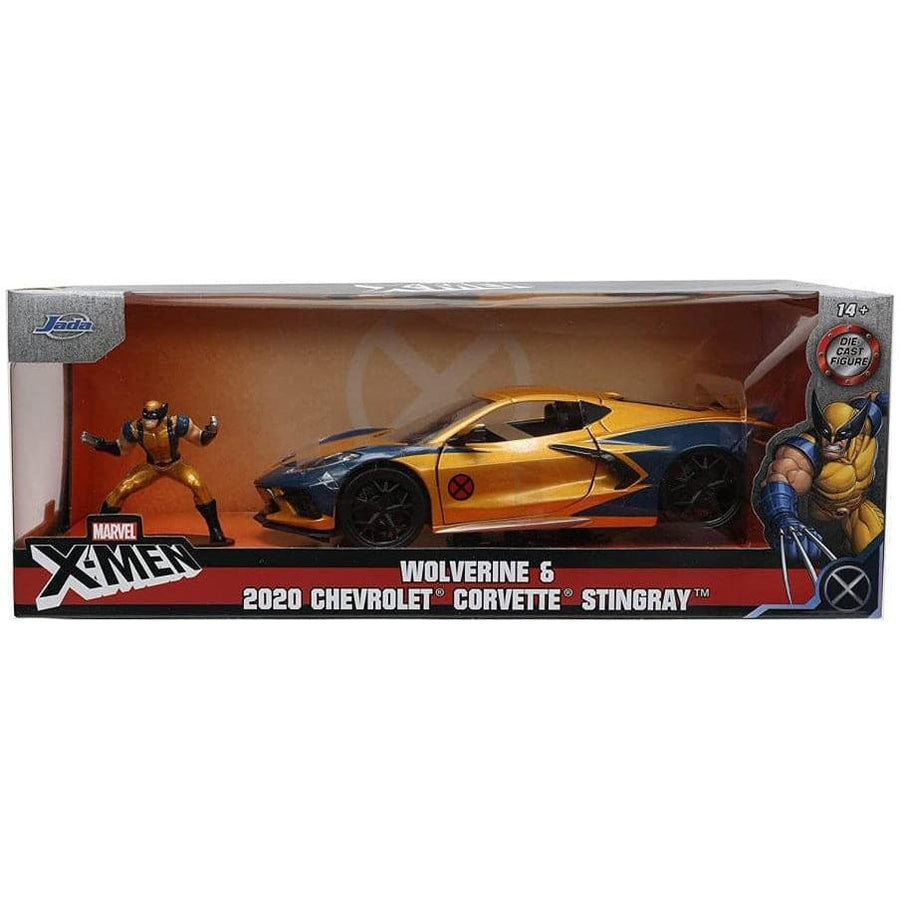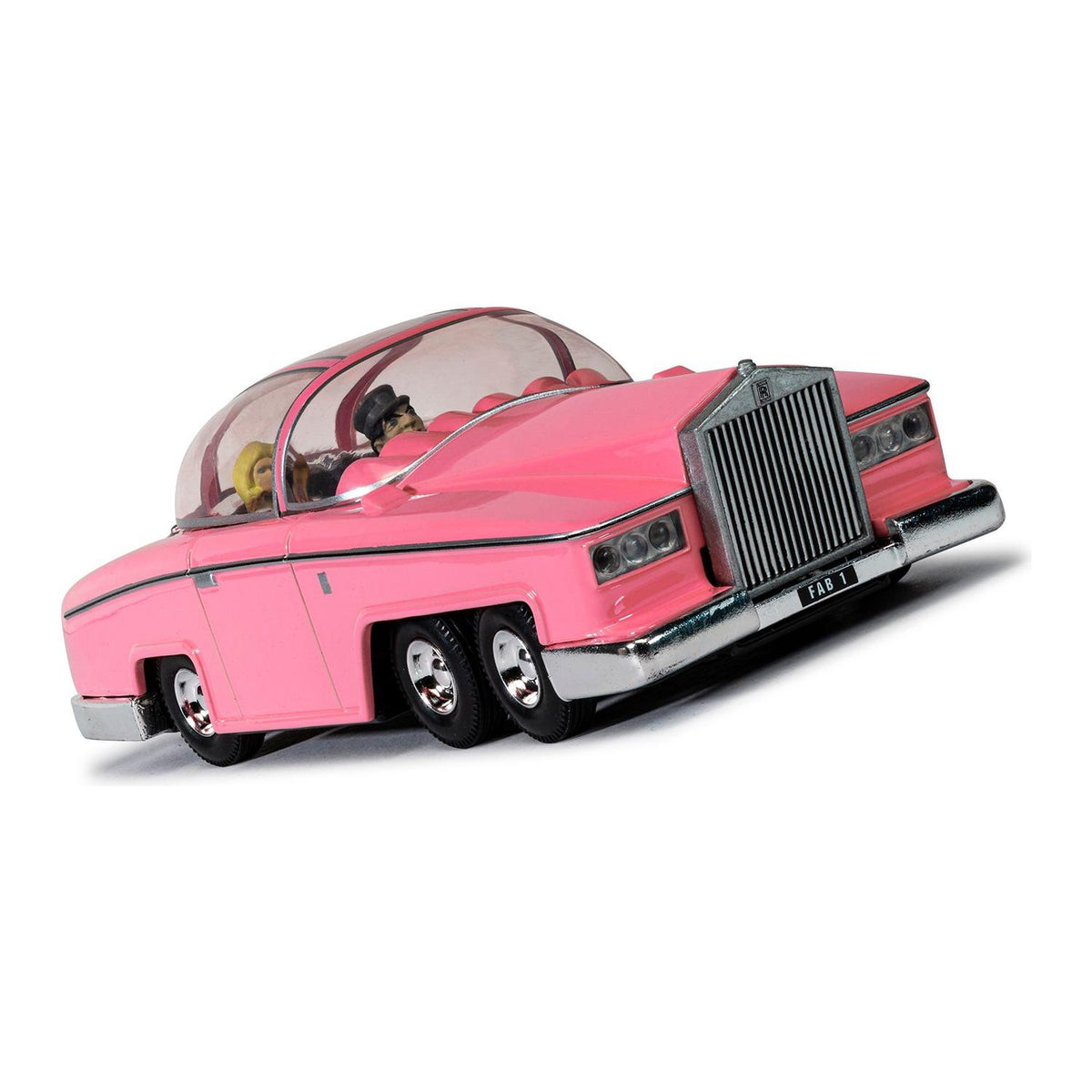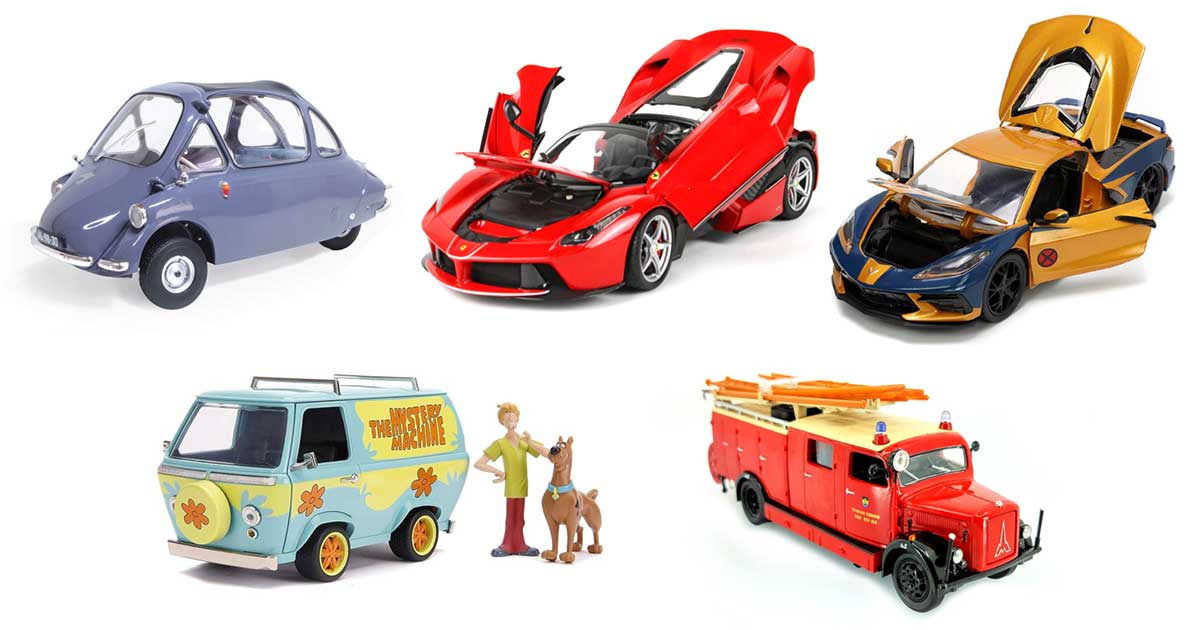How to Spot a Fake Diecast Movie Car Before You Buy
Your essential guide to avoiding counterfeit collectibles and protecting your investment
If you're after the real deal, have a look at our collection of movie and TV diecast cars or explore by scale in our brands collection. This guide is especially handy for those shopping online, at markets, or through private sellers where authenticity can be a bit of a gamble.
Not sure about something? Our team's always happy to help—just drop us a line with any questions.
| Spotting Fake Diecast Movie Cars: Quick Reference Guide | |
|---|---|
| Packaging Red Flags | Spelling mistakes, blurry logos, incorrect product codes, and strange box configurations (like Hot Wheels 4-packs) |
| Build Quality Issues | Sloppy paint jobs, rough edges, wobbly parts, and missing or poorly defined details compared to authentic models |
| Weight Test | Genuine models have substantial weight and solid feel; counterfeits often feel too light or plasticky |
| Authentication Marks | Check for proper manufacturer stamps on the underside, correct rivet/screw construction, and proper licensing text |
| Safest Places to Buy | Authorised retailers like Hearns Hobbies, direct brand shops, and reputable specialty stores |
What's Covered in This Guide
The collector's market can be a minefield when you're trying to avoid fakes. We've broken this guide into easy-to-reference sections to help ya identify the real McCoy:
Packaging & Branding
Spotting dodgy boxes, suspicious logo placement, and other packaging red flags that scream "fake."
Build Quality & Craftsmanship
How to identify poor moulding, dodgy paint work, and the tell-tale signs of rush manufacturing.
Weight & Physical Tests
Simple checks to perform with the model in your hand that can instantly reveal counterfeits.
Brand-Specific Clues
Special tell-tale signs for popular brands like Hot Wheels, Greenlight, and Disney Pixar CARS.
Expert Buying Tips
Insider advice from seasoned collectors on avoiding scams and securing authentic models.
Righto, let's dive into how to protect your collection—and your wallet—from those sneaky fake diecast movie cars.
Packaging & Branding Clues
The packaging is usually your first warning sign when it comes to spotting a fake. Most counterfeiters can't be bothered getting the small details right, and their packaging is often where they trip up. Authentic diecast movie cars come in high-quality boxes with crisp printing, precise logo placement, and proper trademark info. Fakes? Well, they're a different story altogether.
Red Flags in Packaging
Have ya ever picked up a model and thought "something's not quite right"? Trust that instinct! Here's what to look for:
- Spelling mistakes and dodgy grammar: Counterfeiters often make simple errors like "Hot Wheel" (missing the 's') or "Batmobil" instead of "Batmobile"
- Poor print quality: Genuine boxes have sharp, clear images with consistent colours—fakes often look blurry or washed out
- Wrong packaging configurations: For example, authentic Hot Wheels multi-packs only come in 3, 5, 10, or 20-car sets. If you spot a 4-pack, it's definitely a fake
- Missing or incorrect licensing info: Real movie tie-in models always have proper copyright text and studio logos
Pro Tip:
Always compare the packaging with official images from the manufacturer's website or from trusted retailers like our movie and TV diecast collection. The differences might be subtle but they're usually there if you know what to look for.

Authentic Jada Toys 1:24 Chevy Corvette with Wolverine figure packaging - note the crisp graphics and proper licensing
Price Comparison
Let's be fair—if the price seems too good to be true, it probably is. Legit diecast movie cars, especially limited editions or highly detailed models from brands like Greenlight Collectibles, Auto World, or Hot Wheels Elite, aren't made on the cheap.
Counterfeiters often slash prices to attract buyers. While you might think you're scoring a bargain, what you're actually getting is inferior materials, poor workmanship, and a model that'll fall apart faster than you can say "ripoff".
Here's a rough guide on what authentic models typically cost:
| Scale | Average Price Range (AUD) | Too-Good-To-Be-True Price |
|---|---|---|
| 1:64 | $15 - $30 | Under $10 |
| 1:43 | $30 - $80 | Under $25 |
| 1:24 | $60 - $150 | Under $40 |
| 1:18 | $100 - $300+ | Under $70 |
You can compare with our 1:18 scale diecast movie cars or 1:24 scale models to get a feel for genuine pricing.
Build Quality & Craftsmanship
Let's talk about quality—it's where genuine models really shine and fakes fall flat on their faces. Authentic diecast movie cars are made with precision manufacturing techniques, resulting in clean lines, smooth surfaces, and incredible detail work. Counterfeits? They're often rushed through production with little quality control.
Paint and Detailing
The paint job is a dead giveaway when it comes to telling real from fake. Here's what to check:
- Colour accuracy: Authentic models match the exact shade from the film or TV show
- Finish quality: Look for smooth, even application without bubbles, runs, or rough patches
- Detail work: Genuine models have crisp lines between different coloured sections
- Decals and tampos: Logos, racing stripes, and other markings should be perfectly aligned and sharp-edged

Notice the perfect paint finish and crisp detail work on this authentic diecast model
Component Quality
Ya know what really separates the wheat from the chaff? It's in the components. Authentic models get the little things right:
- Wheels and tyres: Real models have proper tread patterns, accurate rim designs, and wheels that roll smoothly
- Windows and lights: Clear, properly fitted windows; headlights and taillights with correct colour and positioning
- Interior details: Accurate dashboards, steering wheels, seats, and even tiny gauges or screens
- Moving parts: Doors, bonnets, and boots that open and close smoothly without wobbling or misalignment
The best way to compare is to check out detailed product photos from our premium diecast models collection.
Special Features
Many authentic movie car replicas include special features that counterfeiters simply can't be bothered replicating properly:
- Working lights: Some higher-end models from Greenlight or Auto World feature working headlights and tail lights
- Sound effects: Certain premium models include film-accurate engine sounds or dialogue clips
- Weathering effects: Accurate battle damage on Batmobiles or mud splatter on off-road vehicles
- Accurate interiors: Complete dashboard layouts, correct seat materials, and properly scaled accessories
If these features seem to work poorly or look obviously fake, you're probably holding a counterfeit.
Weight & Physical Properties
Here's something most collectors know instinctively: pick up a genuine diecast car, and you'll feel the difference immediately. Real diecast models have a satisfying weight and solidity that fakes just can't match. It's all about the materials—authentic models use zinc alloy (hence "die-cast") while counterfeits often substitute cheaper, lighter metals or even plastic with metallic paint.
The Heft Test
Give the model a gentle bounce in your hand. A proper diecast should feel:
- Substantially heavier than it looks
- Evenly balanced (not top or rear-heavy)
- Solid throughout with no hollow or rattling sounds
| Scale | Approximate Authentic Weight | Counterfeit Warning Signs |
|---|---|---|
| 1:64 | 30–45g | Feels like a plastic toy, extremely light |
| 1:43 | 70–100g | Hollow feel, rattles when shaken |
| 1:24 | 200–350g | Significantly lighter than expected, flimsy doors |
| 1:18 | 700–1000g | Weighs half what it should, plastic-like feel |
Don't have a scale handy? Compare with similar models from our diecast collections to get a feel for proper weight.
Bottom Markings & Construction
Flip the model over and check the underside—it's like checking a passport! Authentic models have:
- Clear manufacturer markings (not blurry or misspelled)
- Proper copyright information and licensing details
- Production codes that match the manufacturer's format
- Quality construction methods (proper rivets or screws)

A collection of various scale diecast models - notice the proportional size differences
For example, genuine Mattel Pixar CARS models use rivets in construction and have shorter production codes, while fakes or Disney Store versions often use screws and have longer codes.
Scale Accuracy
Proper scale matters—it's literally in the name "scale model." Counterfeiters often get proportions wrong, even if they claim the correct scale on the packaging. Look for:
- Consistent proportions compared to the real vehicle
- Accurate size relationships between different parts of the car
- Proper fit of figures or accessories (if included)
- Correct scaling of details like door handles, badges, and wheels
Browse our various scale collections to see how authentic models maintain proper proportions.
Authenticating Specific Brands
Different manufacturers have their own tell-tale signs of authenticity. Here's a quick rundown of what to look for with popular movie car brands:
Hot Wheels
Hot Wheels is one of the most counterfeited brands out there, especially their movie cars. Here's how to spot the real deal:
- Name check: It's always "Hot Wheels" (with an 's'), never "Hot Wheel"
- Card packaging: Look for the flame logo, proper copyright text, and clear printing
- Multi-packs: Only come in 3, 5, 10, or 20 configurations—never 4, 6, or other odd numbers
- Manufacturing codes: Check the bottom of cars for proper Mattel codes
Our Hot Wheels movie cars collection shows what authentic packaging and models should look like.
Greenlight Collectibles
Greenlight makes some of the most detailed movie and TV vehicles. Authentic models have:
- Green machine variants: Limited edition "green machine" variants have green wheels/accents
- Packaging style: Distinctive green-edged packaging with film/TV logos
- Chassis detail: Highly detailed undercarriages with proper suspension components
- Serial numbers: Most models have individual serial numbering on the packaging
Compare with our selection of Greenlight Hollywood vehicles to see authentic examples.
Disney/Pixar CARS
The Pixar CARS diecast line has specific authentication points:
- Mattel vs. Disney Store: Mattel versions use rivets and have short production codes
- Facial design: Genuine Mattel 1:55 scale CARS typically avoid the exaggerated smiley faces seen on Disney Store versions
- Weight: Authentic models have solid metal construction
- Base stamps: Clear "©Disney/Pixar" markings on the underside
Browse our Disney/Pixar CARS collection to see authentic examples.
Vintage Collectibles
Older movie cars, like classic Corgi James Bond vehicles or vintage Batmobiles, have their own authentication points:
- Proper patina: Genuine vintage pieces age naturally—artificially aged fakes look "off"
- Correct materials: Period-accurate materials and construction methods
- Original packaging: If present, should show appropriate aging consistent with the era
- Known variations: Familiar with specific production variations from different years
Smart Buying Strategies
Now that ya know what to look for, let's talk about how to shop smart and avoid getting duped by dodgy diecast dealers.
Do Your Research Before Buying
Knowledge is your best defence. Before purchasing, especially for higher-value items:
- Check manufacturer websites: Get familiar with official product images
- Read collector forums: Other collectors often share warnings about current counterfeits
- Know the market: Understand typical pricing so you can spot suspicious deals
- Follow our Hearns Hobbies blog: We regularly post updates on new releases and collecting tips
Stick to Reputable Sellers
The safest bet is always shopping from established, trusted retailers:
- Authorised dealers: Shops like Hearns Hobbies that are official stockists for major brands
- Brand direct: Manufacturer's own online shops or official brand stores
- Specialty retailers: Established hobby shops with good reputations and reviews
Be extra cautious with marketplace sellers, overseas websites with suspiciously low prices, or sellers with limited history or feedback.
Ask Questions and Request Photos
When buying online from individual sellers, don't be shy about asking for:
- Close-up photos: Request detailed images of the box, model details, and underside
- Authentication evidence: Ask about original receipts or certificates if applicable
- Construction details: Images of interior details, moving parts, and special features
- Reason for selling: Genuine collectors usually have reasonable stories behind sales
If a seller seems annoyed by reasonable questions or refuses to provide additional photos, that's a red flag.
Use Authentication Tools and Communities
The collecting community is your ally in fighting fakes:
- Join forums and groups: Facebook groups, Reddit communities, and collector forums are full of knowledgeable enthusiasts
- Authentication apps: Some collector communities have developed reference apps for spotting fakes
- Reference books: For serious collectors, invest in guides specific to your collection area
- Expert verification: For valuable pieces, consider professional authentication services
Frequently Asked Questions
How can I tell if the price is right for an authentic diecast?
Trust your gut—if it seems too cheap, it probably is! Genuine 1:64 scale models typically cost $15-30, 1:43 scale $30-80, 1:24 scale $60-150, and 1:18 scale $100-300+. Anything significantly below these ranges should raise red flags. Check our diecast collections for proper pricing references.
What's the quickest way to spot a fake when I'm holding the model?
Give it the "heft test"! Authentic diecast cars have a satisfying weight and solid feel that counterfeits just can't match. A genuine model should:
- Feel surprisingly heavy for its size
- Be balanced in your hand (not top or rear-heavy)
- Make no hollow or rattling sounds when gently shaken
- Have doors, bonnets, and boots that open smoothly (if designed to)
Where's the safest place to buy authentic diecast movie cars?
Your best bet is to stick with authorised dealers like Hearns Hobbies, manufacturer's official online shops, or established specialty retailers with solid reputations. Be extra cautious with marketplace sellers, suspiciously cheap overseas websites, or sellers who get cranky when you ask reasonable questions about authenticity.
Conclusion
Collecting diecast movie cars should be a ripper experience—not a disappointing one where you end up with dodgy knockoffs that fall apart faster than a house of cards. By keeping an eye out for the tell-tale signs we've covered—dodgy packaging, sloppy craftsmanship, lightweight construction, and suspiciously low prices—you'll be well-equipped to spot the fakes and build a collection you can be proud of.
Remember, authentic diecast models aren't just toys; they're carefully crafted collectibles that capture the magic of your favourite films and TV shows. They're made to last, display beautifully, and potentially even increase in value over time. A proper collection is worth investing in, and that means investing a bit of knowledge to avoid the duds.
Final Thoughts:
Whether you're a seasoned collector or just starting out, we hope this guide helps you navigate the sometimes murky waters of diecast movie car collecting. When in doubt, don't hesitate to reach out to our team at Hearns Hobbies—we're always happy to help sort the wheat from the chaff. Happy collecting, and may all your diecast finds be the genuine article!
 is here! Shop now, pay later in 4 easy installments
is here! Shop now, pay later in 4 easy installments

